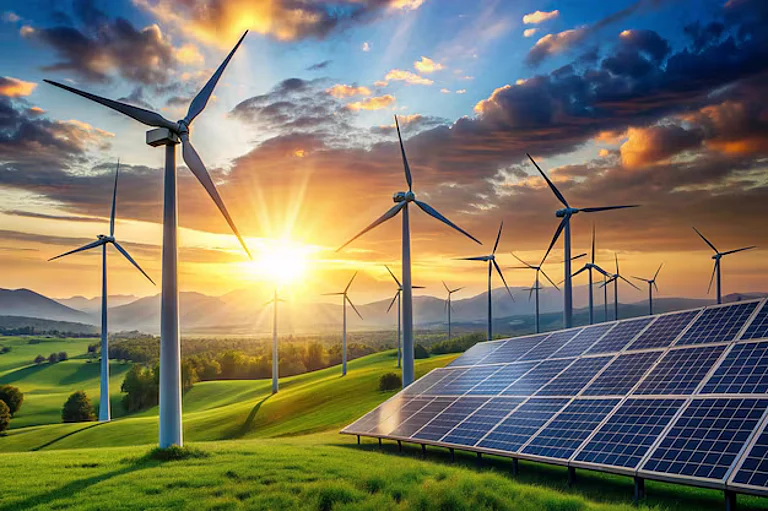
China made $625 billion in clean energy investments in 2024, or 31% of the global total.
Renewables overtook coal in installed capacity, battery storage surged 69% annually.
Clean tech dominance cuts costs, accelerates global shift from fossil fuel dependence.
China’s push for clean energy transition by accelerated deployment of renewables and electrification is reshaping the economics of energy future, with ripple effects likely to trigger a global decline in fossil fuel demand, according to a new report.
The report, titled China Energy Transition Review 2025 by global energy think tank Ember, underscored China’s pace of clean energy investment and deployment, can be used to produce a growing supply of affordable clean energy goods for the global market. In 2024 alone, the country invested $625 billion on clean energy — 31% of the global total of $2,033 billion. Wind and solar capacity more than doubled in just three years, reaching 1,408 gigawatts (GW). By early 2025, renewables overtook coal in installed capacity, while battery storage surged, expanding 69% year-on-year.
Renewables Outpace Fossil Growth
According to the above report, wind and solar generation rose 25% in 2024 and 27% in the first half of 2025, outstripping demand growth and cutting fossil fuel generation by 2%. In the 12 months to June 2025, solar and wind produced more electricity than hydro, nuclear and bioenergy combined — an unprecedented shift in the energy mix of the world’s largest power system.
The Ember report further showed that electrification is spreading throughout the economy. In 2023, 32% of final energy demand was met by electricity, compared to 24% in the US and the EU. It now accounts for 39% of buildings and has surpassed coal as the primary energy source in industry. Fossil fuels are being replaced by electric cars, heat pumps, and industrial electrification in the transportation, heating, and manufacturing sectors.
China’s clean energy transition is underpinned by strategic goals beyond climate, the authors of the report observed. Facing limited fossil reserves and high import dependence, Beijing views renewables as essential to energy security, economic competitiveness and its long-term vision of an “ecological civilisation”, they wrote.
Clean technologies generated $1.9 trillion in economic output in 2024, roughly a tenth of its GDP, and are growing three times faster than the overall economy, stated the Ember report.
China Influences Global Markets
China’s dominance in clean technology is reshaping global markets. With more than 80% share in all manufacturing stages of solar panels, the country’s scale drives prices down, making renewable more affordable worldwide, according to a 2022 report by International Energy Agency (IEA).
Given that other economies rely significantly on Chinese-made technology to electrify and decarbonise, this positioning increases its influence in global energy transitions.





























